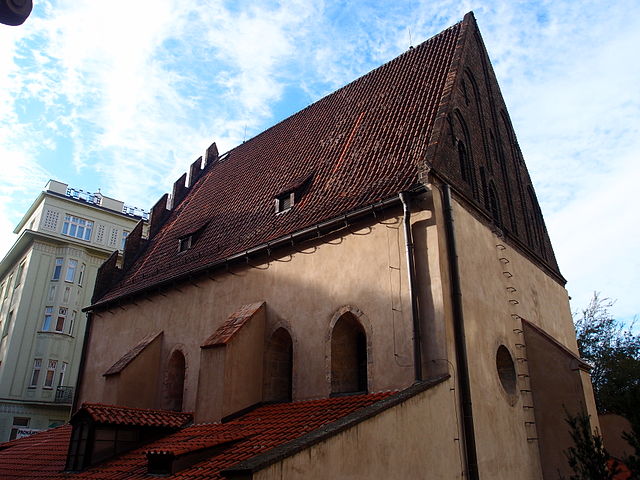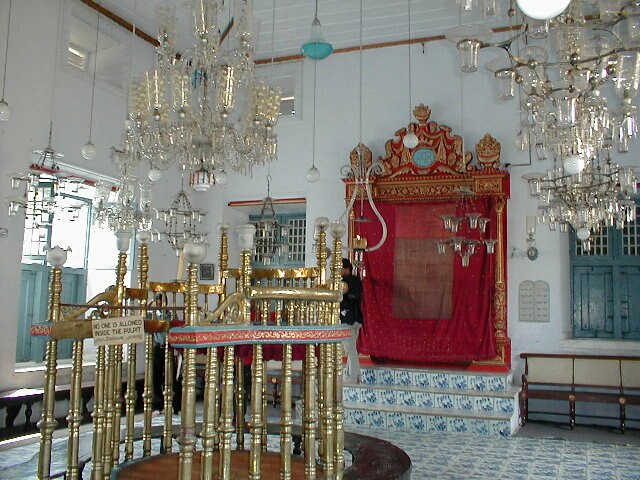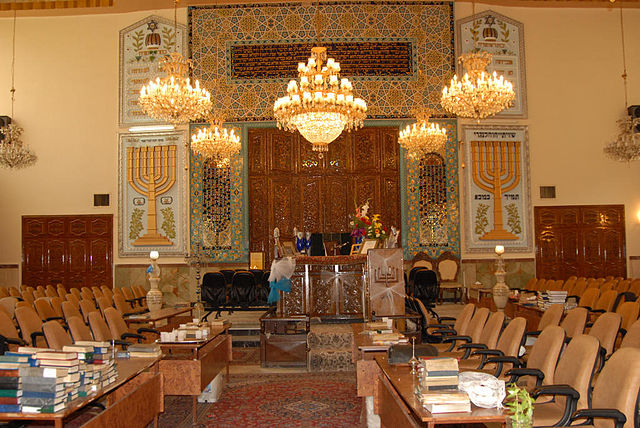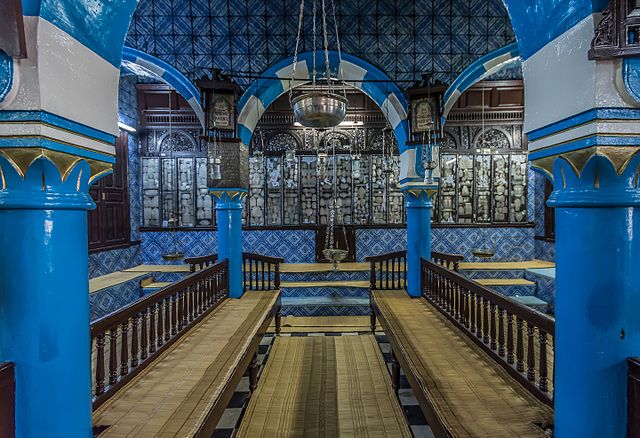Historic synagogues include synagogues that date back to ancient times and synagogues that represent the earliest Jewish presence in cities around the world. Some synagogues were destroyed and rebuilt several times on the same site. Others were converted into churches and mosques or used for other purposes.
The Old Synagogue in Erfurt, Germany, portions of which date from c. 1100
The Synagogue of Santa María la Blanca was built in Toledo, Spain in 1190.
The Old New Synagogue in Prague, Bohemia (Czech Republic), the oldest synagogue in continuous use, built around 1270, compares similarly with the Ramban synagogue in Safed, modern Israel.
The Paradesi Synagogue in Kochi, India
A synagogue, also called a shul or a temple, is a place of worship for Jews and Samaritans. It has a place for prayer where Jews attend religious services or special ceremonies such as weddings, bar and bat mitzvahs, choir performances, and children's plays. They also have rooms for study, social halls, administrative and charitable offices, classrooms for religious and Hebrew studies, and many places to sit and congregate. They often display commemorative, historic, or modern artwork alongside items of Jewish historical significance or history about the synagogue itself.
Eldridge Street Synagogue in New York City, U.S.
Princes Road Synagogue in Liverpool, England
Yusef Abad Synagogue in Tehran, Iran
El Ghriba Synagogue in Djerba, Tunisia








